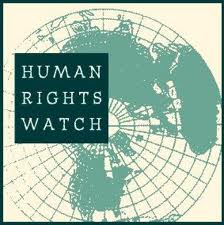From: Boris O. Dittrich, Advocacy director Lesbian, Gay, Bisexual, and Transgender Rights Program, Human Rights Watch, New York
Dear delegate to the 2011 Australian Labor Party Conference,
Australian Labor Party should vote in favor of same-sex marriage
On the eve of your party’s Conference where you will be debating whether the ALP should support same-sex marriage in Australia, I invite you to look back to a country which has been through the same discussions and soul searching about 15 years ago.
In 1994 I was a member of the Dutch parliament and proposed to introduce marriage equality legislation. Years of debate ensued. The first argument which was used against my proposal was that a marriage between two people of the same gender did not exist anywhere in the world and that if the Netherlands would introduce same-sex marriage, the rest of the world would openly mock us. That argument cannot be used anymore since more than 10 countries followed suit and opened their civil marriages to same-sex couples. Even predominantly Catholic countries like Argentina, Portugal and Spain have since allowed such marriages. Noteworthy is that in all countries where same-sex marriage was introduced a Labor government was in charge or supportive of the concept. Labor leaders in the United Kingdom, New Zealand, Ireland as well as the Social Democratic prime minister of Denmark announced they are in favor of same-sex marriage. Denmark will introduce a bill within the near future.
The second argument which was often used against marriage equality was that God created Adam and Eve and thus only recognizes a marriage between a man and a woman. In response to that the Dutch Labor Party (PvdA) and others always explained that in the Netherlands there is a separation between church and state. In the Netherlands by changing the law we were arranging a broadening of civil marriage. Freedom of religion means that religious denominations have the right to exclude same-sex couples from wedding ceremonies within their churches, synagogues, or mosques. The state however is bound by principles of non-discrimination and equal treatment, fundamental rights long-recognized in Australia.
The third argument was that the introduction of same-sex marriage would diminish the importance of the traditional marriage between a man and a woman and it would set a chain of negative consequences in motion from the wrath of God to a moral decline that would lead the Netherlands into the abyss.
In spite of these objections, the majority of parliamentarians eventually supported marriage equality. Labor Prime Minister Wim Kok, who initially was against the concept of same-sex marriage, came around and did not block the implementation of the law but decided to support it in the 1998 coalition contract of his new Labor- led government. The first same-sex marriages took place more than 10 years ago, on April 1, 2001.
As far as I can tell, over the last decade the Netherlands did not fall into the big void of moral decay. Interestingly enough, an increasing number of nearly 75,000 civil marriages take place each year, of which on a yearly average 1,400 are same-sex marriages. Heterosexual couples did not turn away from the institution of marriage, nor did the world isolate the Dutch.
In the course of 10 years same-sex marriage has been accepted by a large majority of Dutch society. It has become a non-issue. Even political parties which voted against the bill did not attempt to change it when they came into power.
People are used to seeing two persons vowing to take responsibility for one another and support each other. Their gender is not relevant. Even opponents of the same- sex marriage bill changed their minds. One well-known example is Hannie van Leeuwen, who was a Christian-Democratic senator at the time of the parliamentary debates and a fierce opponent. In 2005 she publicly said: “At the time I opposed same-sex marriage, I was led by fear. Having seen so many gay and lesbian couples getting married, I realize I was wrong. I don’t understand anymore what made me treat gays and lesbians differently from other citizens.”
Not only in the Netherlands, but also elsewhere have politicians of all political persuasions stood up in support of same-sex marriage. They realize that gays and lesbians are not a separate group with a different sexual orientation; they understand gays and lesbians are part of society. They are our sons and daughters, our brothers and sisters, our fathers and mothers, our friends and neighbors.
In October 2011 British Prime Minister David Cameron spoke at the Conservative Party’s conference in Manchester:
We’re consulting on legalizing gay marriage. To anyone who has reservations, I say: Yes, it’s about equality, but it’s also about something else: commitment. Conservatives believe in the ties that
bind us that society is stronger when we make vows to each other and support each other. So I don’t support gay marriage despite being a Conservative. I support gay marriage because I’m a Conservative.
The eyes of the world are on your conference. The Australian Labor Party is seen as a progressive party which supports the right of non-discrimination and equal treatment.
I urge you to do the right thing and vote for marriage equality and join the group of countries which opened their civil marriage law for people of the same gender.
Respectfully yours,
Boris O. Dittrich Advocacy director Lesbian, Gay, Bisexual, and Transgender Rights Program
November 23rd 2011

